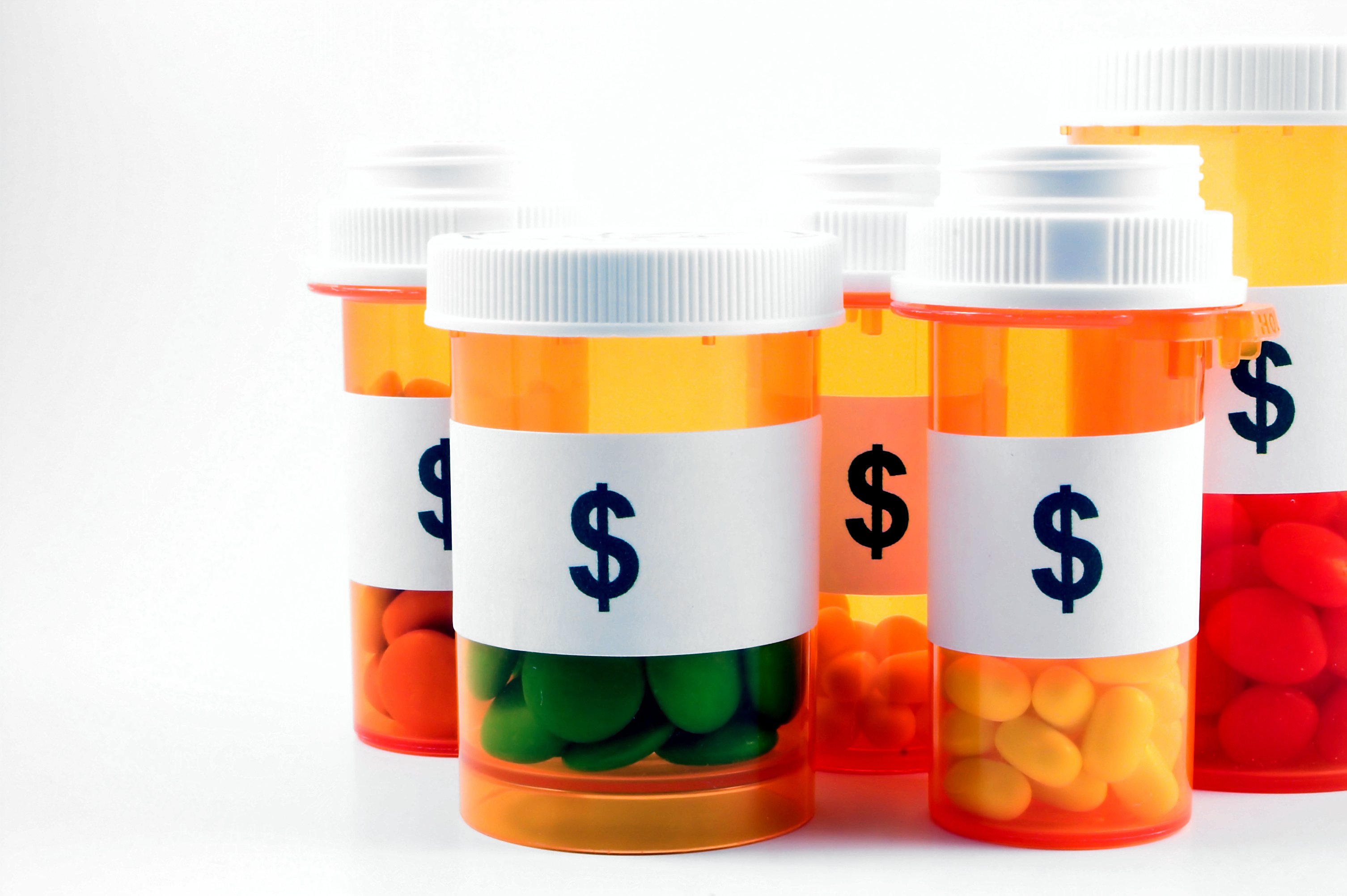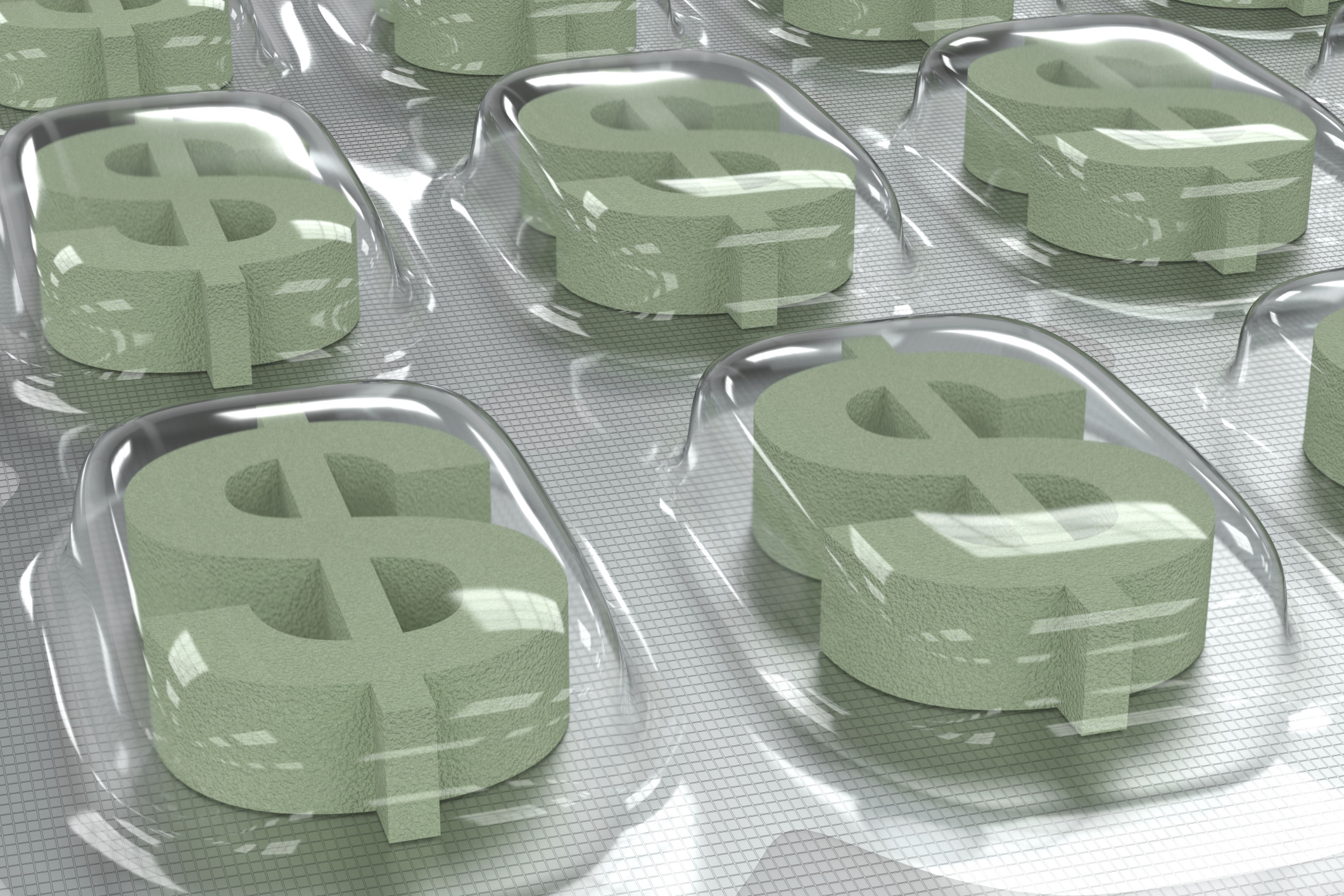
Image source: Getty Images.
No, your eyes (or wallet) aren't deceiving you -- the perception of pharmaceutical price-gouging has certainly become more commonplace over the past year.
Last September, Martin Shkreli, the "Bad Boy of Pharma," increased the price of a 62-year-old rare-disease drug known as Daraprim by more than 5,500% overnight for the explicit reasoning of generating more profit for his now-former company, Turing Pharmaceuticals. What made Shkreli's move so brash was that Turing made no changes to the formulation or manufacturing process of Daraprim. It was merely passing along a roughly 5,500% price increase because it could.
Shortly thereafter, it was Valeant Pharmaceuticals' (VRX 1.20%) turn to be raked over the coals for similar pricing practices with cardiovascular medications Nitropress and Isuprel, both of which were acquired by Valeant in Feb. 2015 from Marathon Pharmaceuticals. Valeant wound up increasing the price on these cardiovascular therapies by 525% and 212%, respectively, and did so without altering their formulation or manufacturing process.
Mylan becomes the new villain
More recently, Mylan (MYL +0.00%) and its CEO Heather Bresch have come under fire for the rapid rise in severe allergic reaction medication EpiPen, which has seen its price increase from a little more than $100 for a pack of two in 2007 to $609 in 2016. The majority of these increases have occurred within the past three years, as prices have more than doubled from $265 to $609, according to The New York Times.
Image source: Wikimedia Commons user Intropin.
The Mylan story got even worse this week when two members of Congress accused Mylan of improperly classifying its drug as a generic product under the Medicaid rebate program, thus bilking taxpayers and patients of discounts they should be due. Medicaid has spent nearly $800 million on EpiPens over the past five years, and if the allegations from the lawmakers on Capitol Hill are true, Mylan may have overcharged the federal government by at least $80 million, if not more.
However, what's arguably stood out most as the EpiPen story unfolds is the comment CEO Bresch made on CNBC's Squawk Box back in August. Bresch said, "The system incentivizes higher prices on the brand, and if you don't play in the system, in the system that's broken today, your products aren't going to get to patients."
Needless to say, this comment didn't exactly go over well with EpiPen customers or taxpayers in general who are frustrated with prescription drug costs handily outpacing wage growth and the national rate of inflation year in and year out.

Image source: Getty Images.
Soaring drug prices are a healthcare system issue, not a CEO or management issue
However, I'd offer a different perspective. I'd suggest you stop blaming the CEOs and management teams who are simply following the rules of the U.S. healthcare system and start blaming the healthcare system itself for the gargantuan price increases consumers are dealing with.
There's nothing short of a laundry list of inherent advantages afforded to drugmakers by our healthcare system that allows and encourages price increases that are well above and beyond the rate of inflation.
For starters, patent exclusivity periods practically ensure that drugmakers have the ability to recoup the costs of developing a marketed drug, as well as recapture some of the money lost while attempting to bring what could be dozens or hundreds of additional drugs to market in the discovery, lab, preclinical, or clinical stages. Drug patents are usually good for 20 years from the date the Food and Drug Administration OK's the start of clinical trials in humans, with additional protections afforded to orphan drugs that target diseases and disorders in 200,000 or fewer people in the United States. These protections keep copycat drugs out and allow drugmakers to stay ahead of the inflationary curve.
Legal wrangling, alongside of patent protections, also affords drugmakers ample loopholes to keep generic competition out of the marketplace. Recently, Teva Pharmaceutical (TEVA +0.80%) used legal means to stall the entrance of generic versions of Copaxone, its blockbuster multiple sclerosis injection, to the marketplace. Doing so allowed Teva to develop and launch an extended-release formulation that was more convenient than the original, which was about to lose its exclusivity. This allowed Teva to transfer its longtime customers over to the new formulation of Copaxone, thus avoiding the loss of significant revenue to generic entrants.

Image source: Getty Images.
Consumers can also blame the system for Medicare and insurers having very little control over drug pricing. Whereas Medicaid can at least negotiate drug prices on its behalf, Medicare is barred from doing so, leading to the program, which is primarily focused on the elderly, paying considerably higher list prices, and receiving fewer discounts and rebates from drugmakers. Likewise, insurers have little choice but to walk a tightrope between paying out the nose for specialty and branded medications, or removing a drug from its approved formulary and risking the loss of members as a result.
The U.S. healthcare system also prevents consumers from purchasing pharmaceutical products from overseas markets, mainly because of the stringent manufacturing and safety standards that are set by the FDA and couldn't be established by importing ex-U.S. pharmaceutical products. Combined with a higher standard of living in the U.S., drugmakers are able to pass along higher prices with the full expectation that consumers and insurers can absorb them.
Lastly, the U.S. is among just a small handful of developed countries without a universal health plan. The lack of a universal health plan means lawmakers aren't able to set caps on drug prices, which allows drugmakers to fire along price increases on an at-will basis.
Change should come from Capitol Hill
Chastising Mylan's CEO for her actions, and penalizing Mylan with hefty fines, might seem like the wise thing to do, but it's not going to accomplish much with regard to getting prescription drug inflation under control. This is a systemic issue with the healthcare system itself, and if change is going to be made, it's going to have to come from Capitol Hill.
But, change won't come easy with drugmakers well aware of the inherent advantages afforded to them. Drugmakers could "retaliate" by reducing their research and development budgets or moving their operations to cheaper overseas markets if the federal government attempted to take some of the pricing power away. Of course, with no prior precedence of the federal government taking a line-in-the-sand approach with drugmakers, it's anyone's guess as to what would actually transpire.
Chances are this is going to remain a front-and-center issue for the incoming administration to deal with after the election.









